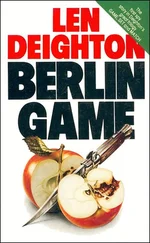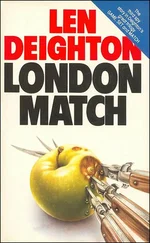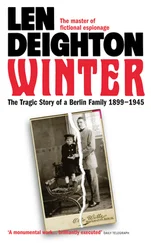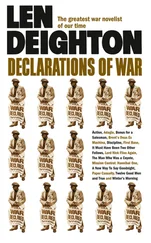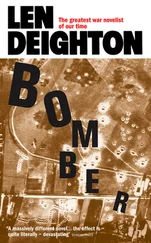LEN DEIGHTON
SS-GB
This novel is entirely a work of fiction. The names, characters and incidents portrayed in it are the work of the author’s imagination. Any resemblance to actual persons, living or dead, events or localities is entirely coincidental.
Published by HarperCollins Publishers Ltd 1 London Bridge Street London SE1 9GF
www.harpercollins.co.uk
A paperback edition 2009
FIRST EDITION
First published in Great Britain by
Jonathan Cape Ltd 1978
Cover design © HarperCollins Publishers Ltd 2017 Cover photograph © Sid Gentle Films Ltd 2017
Copyright © Len Deighton 1978
Introduction copyright © Pluriform Publishing Company BV 2009
The verse from ‘The White Cliffs of Dover’ is reproduced by permission of EMI Publishers Ltd 138–140 Charing Cross Road, London WC2H 0LD. © 1941 by Shapiro Bernstein & Co., Inc., subpublished by B. Feldman & Co. Ltd
Len Deighton asserts the moral right to be identified as the author of this work
A catalogue record for this book is available from the British Library
All rights reserved under International and Pan-American Copyright Conventions. By payment of the required fees, you have been granted the non-exclusive, non-transferable right to access and read the text of this e-book on-screen. No part of this text may be reproduced, transmitted, down-loaded, decompiled, reverse engineered, or stored in or introduced into any information storage and retrieval system, in any form or by any means, whether electronic or mechanical, now known or hereinafter invented, without the express written permission of HarperCollins e-books.
Ebook Edition © 1978 ISBN: 9780007347742
Version: 2017-05-22
Cover
Title Page
Copyright
Introduction
Chapter One
Chapter Two
Chapter Three
Chapter Four
Chapter Five
Chapter Six
Chapter Seven
Chapter Eight
Chapter Nine
Chapter Ten
Chapter Eleven
Chapter Twelve
Chapter Thirteen
Chapter Fourteen
Chapter Fifteen
Chapter Sixteen
Chapter Seventeen
Chapter Eighteen
Chapter Nineteen
Chapter Twenty
Chapter Twenty-one
Chapter Twenty-two
Chapter Twenty-three
Chapter Twenty-four
Chapter Twenty-five
Chapter Twenty-six
Chapter Twenty-seven
Chapter Twenty-eight
Chapter Twenty-nine
Chapter Thirty
Chapter Thirty-one
Chapter Thirty-two
Chapter Thirty-three
Chapter Thirty-four
Chapter Thirty-five
Chapter Thirty-six
Chapter Thirty-seven
Chapter Thirty-eight
Chapter Thirty-nine
Chapter Forty
About the Author
By Len Deighton
About the Publisher
‘My book , Inside the Third Reich, never reached the top of the New York best seller list,’ Albert Speer told me. ‘ It was Everything You Always Wanted to Know About Sex but were afraid to ask that always remained at number one.’
I am still not sure if he was joking. Hitler’s onetime Minister of Armaments had a sharp sense of humour, especially about the men with whom he had been in Spandau prison; he always referred to Field Marshal Milch as ‘Milk’. And when writers get together sales talk is not unusual.
But Albert Speer was not the catalyst for SS-GB . It began over a late-night drink with Ray Hawkey the writer and designer, and Tony Colwell my editor at Jonathan Cape. ‘No one knows what might have happened had we lost the Battle of Britain,’ said Tony with a sigh as we finished sorting through photos to illustrate my book, Fighter: The True Story of the Battle of Britain .
‘I wouldn’t go as far as that,’ I told him. ‘A great deal of the planning for the German occupation has been found and published.’
I had read some of that material and, after this conversation, I sought out the official German publications and began wondering if Britain under German rule would make a book. It would have to be what was then called an ‘alternative world’ book and that was outside all my writing experience. On the other hand, research for Fighter and Funeral in Berlin and particularly Bomber , had brought me into contact with many Germans, mostly men who had fought in the war.
I work very slowly so I don’t embark on a story until I am confident that I will be able to get the material for it and live with it for many months, perhaps years. The plot problems seemed insurmountable. Would I create a hero in the German occupation army? I wouldn’t want a Nazi as a hero. If I told the story through the eyes of a British civilian how would such a person have enough information to make the plot work? A notable member of the resistance would qualify as a hero but such heroes would all be dead, or fugitives.
This story had to be told from the centre of power. The police would be the people who connected the conquerors with the conquered but that sort of compromise role was not attractive to me. I went round and round on this until I thought of a Scotland Yard detective as hero. A man who solved crimes and hunted only real criminals could have contacts at the top and yet still be acceptable as a central character. I would frame it like a conventional murder mystery, with corpse at the start and solution at the end.
I like big charts and diagrams. They serve as a guide and reminder while a book is being written. Using the German data I drew a chain of command showing the connections between the civilians and the puppet government, black-marketeers and quislings and the occupying power with its security forces and bitterly competitive army and Waffen SS elements. My old friend, and fellow writer, Ted Allbeury had spent the immediate post-war period in occupied Germany as what the locals called ‘the head of the British Gestapo’. Ted’s experience was very valuable indeed and I used his experience and anecdotes to the full.
For the London scenes, I used only places that I had known in the war, so in that respect there is an autobiographical element in the story. I remembered London in wartime: the dimly lit streets, gas lights that hissed and spluttered, tin baths in front of the fire, rationing that made food a constant subject of thought and conversation, and bombed homes that spewed their intimate household contents into the streets.
The Scotland Yard building had to be the stage upon which my story was played but the police were no longer using it. It had become an office building for members of parliament and was strictly guarded. The Metropolitan Police were very cooperative about letting me into their new building and they let me use their fascinating library and their archives too without restrictions of any kind. I spent many days studying wartime crimes and looking at pictures of Scotland Yard detectives in the natty suits that were mandatory at that time. But the obstacle remained, the police had no authority over the building they had vacated.
By a wonderful piece of luck I found an elderly ex-policeman who knew the building from cellar to attic. I recorded hours of his descriptions but I still could not get into it until a friend named Freddy Warren devised a method by which I could explore every nook and cranny of the historic Scotland Yard building. Freddy’s authority as an official of the Whip’s office was to allot the offices to the politicians. He took me on a guided tour. With him I went everywhere; opening doors, interrupting conferences, awakening sleepers and declining liquid refreshment. No one was going to risk upsetting Freddy. I remain indebted to him and I hope that this record of the Scotland Yard building, as once it was, justifies the trouble he took on my behalf.
Читать дальше



